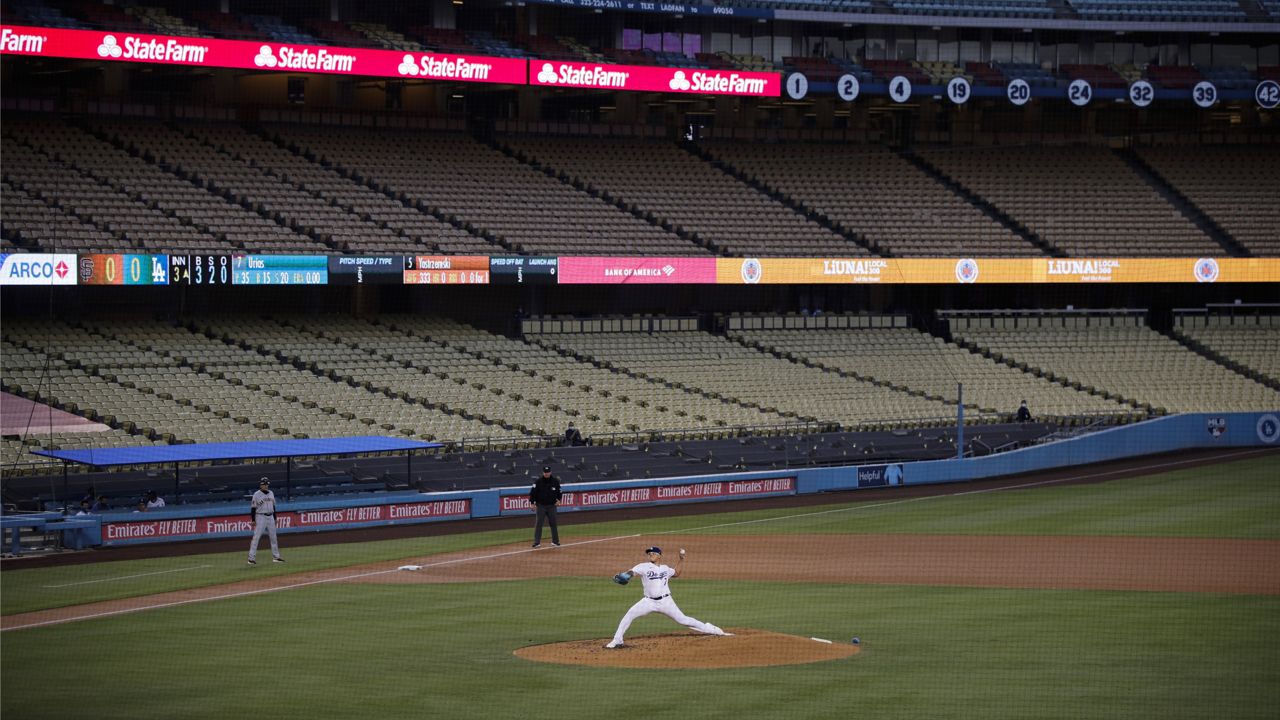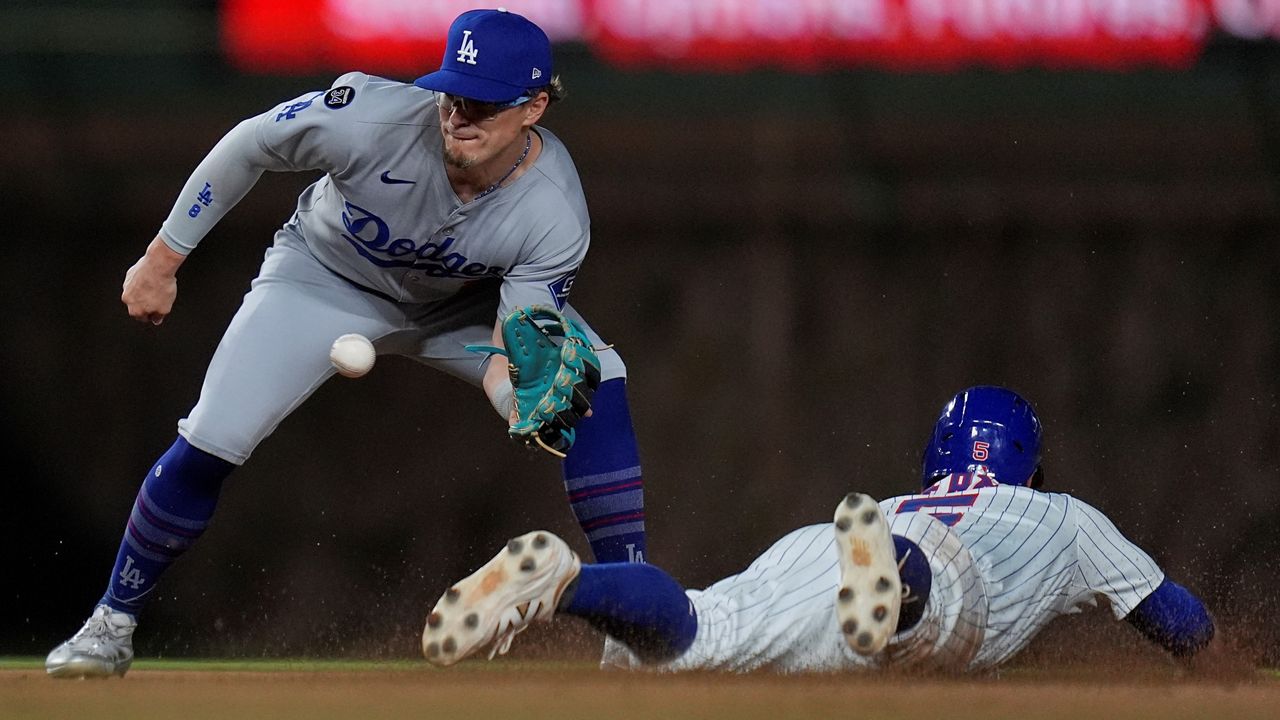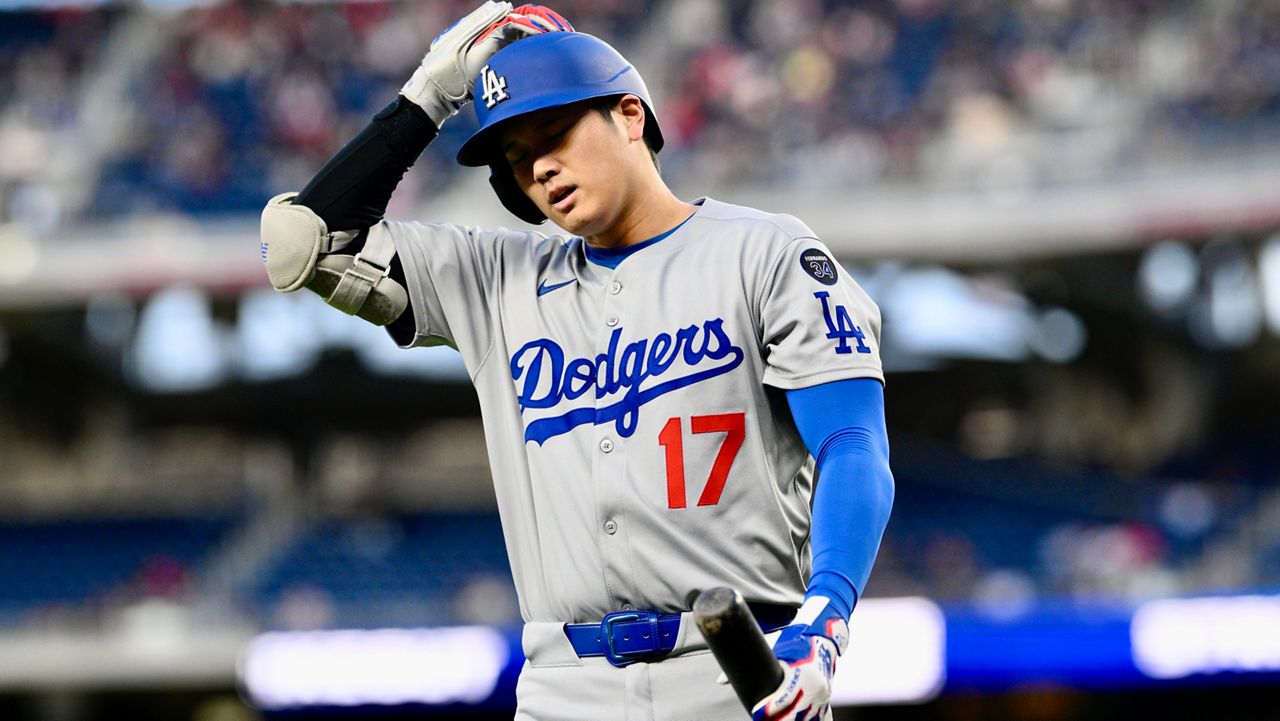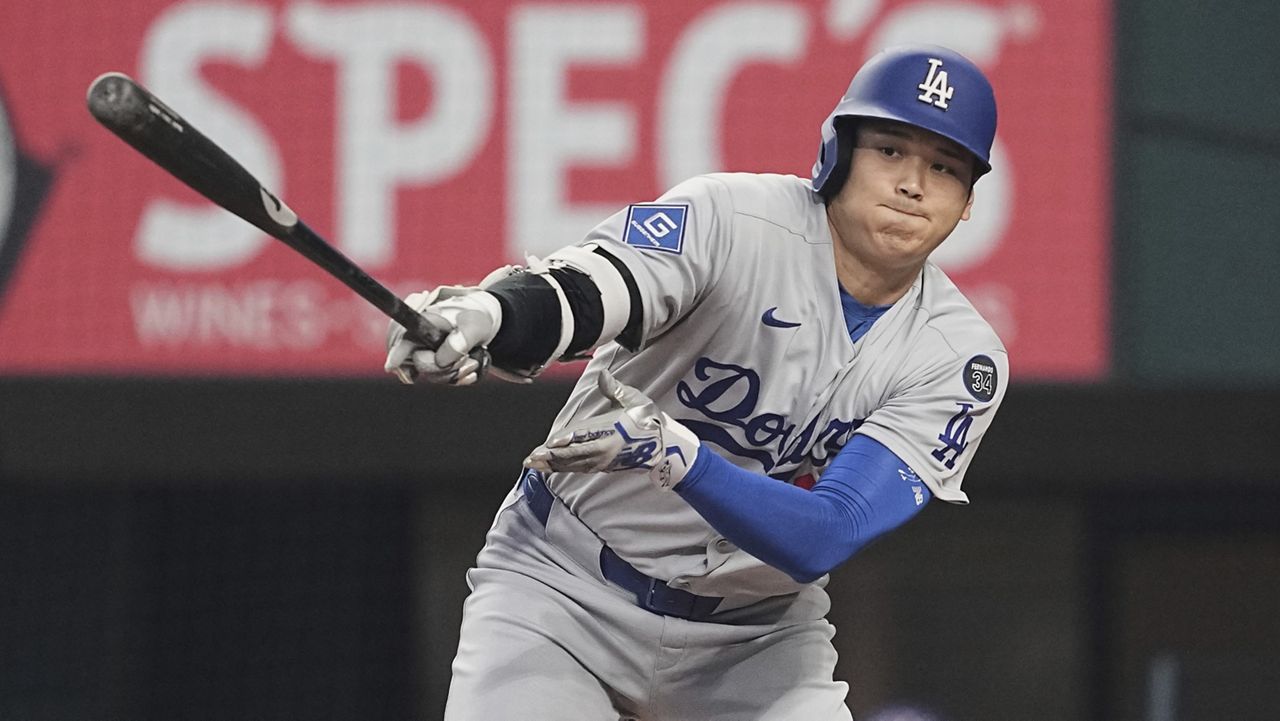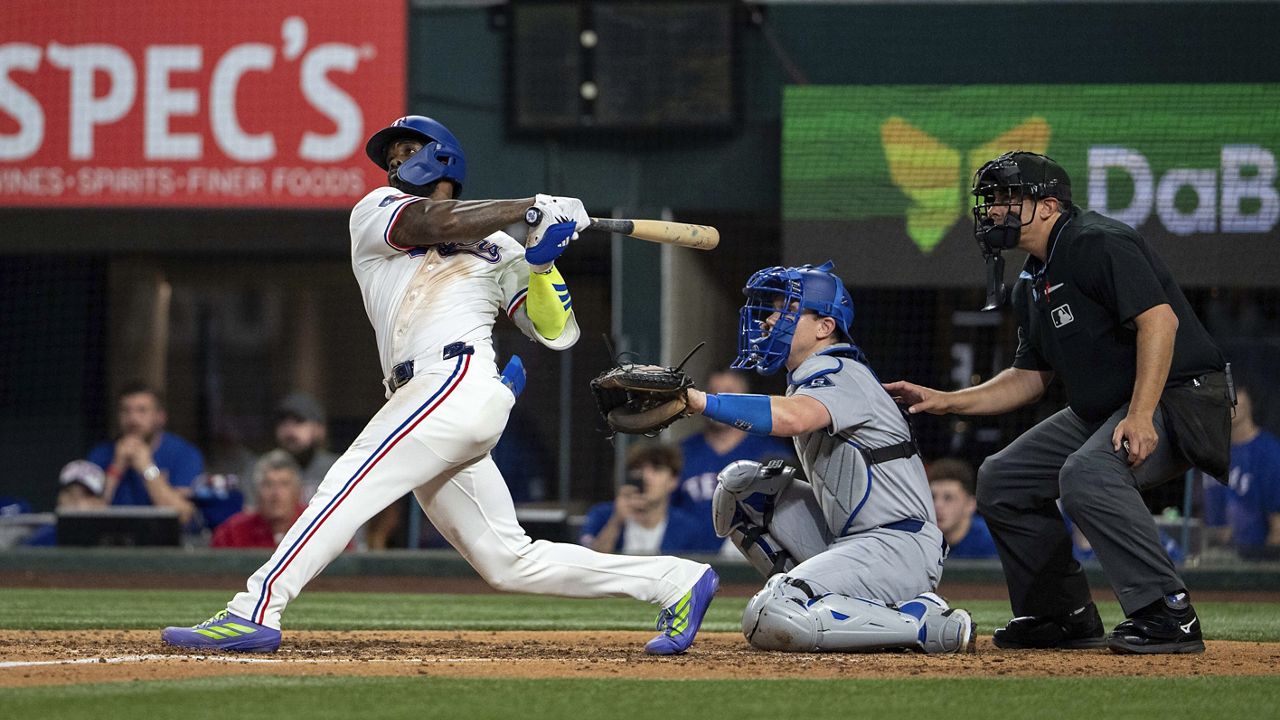EL SEGUNDO, Calif. — Dr. Marisa Vasquez's first day as primary care head team physician with the Dodgers was on March 1, 2020, two weeks before Los Angeles County went on lockdown.
Dr. Vasquez spoke with Spectrum News 1 about the creation of COVID-19 protocols within the team, the challenges of keeping a 40-man team safe during a global pandemic, and winning a World Series.
She also gave us an update on player vaccinations and her 2021 outlook.
Vasquez: I'm actually from a small agricultural fringe town called Brawley. It's in Imperial Valley. You've probably heard of it during the pandemic because it's unfortunately one of the communities that was the hardest hit by square footage with COVID.
It’s a farming community and my parents were both farm workers and immigrants from Mexico. There's not a lot of resources in that town, the population is mostly immigrants, and it's my home. I grew up there and figured out how to utilize the little resources that were there to try to make improvements for everyone else and myself.
Vasquez: I think a lot of it stems from growing up in this really remote area where there really wasn't access to health care and so that really drove me to pursue medicine. The sports part falls a little bit later in life. … I also grew up during the Fernandomania time, so I was a Dodger fan from, you know, I was about the age of my daughter (9), I was totally a Dodgers fan. That’s the last time that we had the World Series under our belt. It was a shaping time for me because I think my love of sports was growing and developing during that time and as I got older, I started learning about what it took to take care of athletes and how you could do that as a primary care physician. And so it wasn't actually until I was in medical school that I decided that I wanted to combine my love of sports with primary care because I felt if there's one doctor that can do everything on the sideline, it's a primary care doctor.
Vasquez: I knew that UCLA was looking for a physician that was really a seasoned physician in sports medicine who had an interest in professional sports. Then, when I saw it was the Dodgers, I was like, ‘Oh yeah, I’m applying for that!’ When I saw that call for applicants, and I read through what they wanted I was like this is something I can totally do, and I really want to do.
It was a rigorous application. It's a nationwide search, I had multiple interviews leading up to the main interview, which was eight hours long. It started at UCLA and ended at the end of a Dodger home game win, so it's a long interview day. After the interview, I actually didn't hear back for several months… so I put it out of mind. When I got notice, which was right around Christmastime [of 2019], I had to read the email twice, because I was like, ‘What?’ I was just in disbelief and at the same time I was like, 'Wow this is really meant to be.'
There’s very few women in sports medicine at these levels and so it just gave me a new platform to be on, and I wanted to do that, and I wanted my fellows that I trained to see that these are attainable positions.
Vasquez: Yeah. Absolutely. There's so many times that I was the only woman, the only one that had done this, the first of many things. So just having the opportunity to be in this new platform and this new position and really shine the light on primary care. I’m really proud to be able to do that.
Vasquez: You see what's going on in the rest of the sports world and you see what's going on in other countries and other leagues. So I had been reading in the news some of the things that were happening internationally, and it wasn't looking very good at the time.
My first trip was to Camelback Ranch for spring training on March 1. There were discussions about having to start putting in some protocols to reduce contact. My second trip there was a week later on March 7. At that point, we were having the discussion about how we need to minimize contact with individuals and try to start maintaining distance. Then the next week the NBA announces we're shutting everything down. … And two days later MLB follows suit. At that point everything is shut down.
From a team perspective, practices were canceled. So we have to think about, OK, how are we going to get these folks back to practicing and training and how can we do that safely. So definitely the wheels start turning and that's when as a physician you start utilizing whatever resources that you have, and I am very fortunate that at UCLA we have really good resources for public health and infectious diseases, and they were my go-to people.
I have training in mass casualty and mass events, so you use some of those skills to put together your protocol. And this is a novel virus that no one really knew enough about and so it's constant research and making sure that that constant research that you're doing has validity to it because there's so much information. You have to really dissect the data and be very critical about it when you use that data and know that it might change in a couple of days or in a week or more.
Vasquez: Yes. I'm a cowgirl! I'm a bring it on person. … But also I like to think about my decisions when they're really difficult decisions to make. I like to think about them. But I definitely invite challenges.
Vasquez: It's actually quite a bit of contact because not only am I responsible for putting protocols in place at Dodger Stadium, but also at Camelback and anywhere else they're training. So I'm getting calls from all over the country at the different locations. Some people are training at home and so they might have questions that come up or if they get sick or someone in their family gets sick. I'm getting questions from just everywhere. So that would require me to understand and know what the rules are in their state. So not only did I have to understand what the rules were in California and specifically in L.A. County, but I had to also understand what's allowed and what's not allowed. What do the numbers look like in Maricopa County where Camelback ranch is [located]. And for those that were in Florida … what kind of risk they had while they were in Florida … so that I could counsel them and give them some guidance on different parameters for dealing with the pandemic.
And there's a lot of communication with the with the club specifically and then with MLB and with other health experts. So it was a big collaboration. A lot of folks were involved in trying to keep everyone safe and also have a season at some point when it was allowable to do so and safe to do so.
Vasquez: I think the biggest challenge was that of the pandemic itself and the little information we knew about this virus and how to treat it and how to really control the spread of it in a 40-man team. There's a lot of folks in baseball. It's not a small team.
Each club is tasked with creating their COVID protocol, so that means going to the stadium, traveling when they're at home, if someone is sick, if someone has a different non-COVID related illness — how to manage that and how to handle those specific situations. That is up to the local team physicians. So that was something that we took on and we were very meticulous about thinking about every particular scenario that could happen because if you have a plan,— then you're more likely to execute in a very good way at the end of the day. So that was our protocol for participation.
The second protocol is really the testing strategy. So the testing strategy was put forth by MLB but then there's a lot of in between decisions that need to be made where we didn't really have a lot of guidance from MLB because it really depends on the local jurisdiction. So I had to really be on top of what the local jurisdictions were because, unfortunately, L.A. County was in a very, very different league than everybody else. And they were just really going through a lot more restrictions and just a lot more risk with the pandemic.
Vasquez: It was really, really exciting and it is the icing on the cake. I think it showed that all the work that was put into planning and trying to keep everyone as safe as possible and really put all of these strategies [into place] culminated in the World Series win.
I was not physically in Texas … it was delegated to the local physician, but I was on the phone with them … and my phone blew up when we won, which was exciting. Then I had to separate the personal calls from the business calls that I needed to attend to because it was exciting and crazy all at once.
Vasquez: I think one of the biggest things that we learned is that social distancing and masking works. It's effective, and it's important to reinforce it constantly. Not just at a team level but at a community level. We're still in a rather vulnerable state. We have some folks that have had coronavirus, folks that have been immunized, folks that are still vulnerable to the virus. I think we still need to be able to enforce those and encourage everyone to follow those protocols and not to get too comfortable yet because we're not there yet as a community.
I think the other thing that we learned is that you can have a season. You can actually have a season, but it requires a lot of teamwork and a lot of moving parts to make it happen. If you don't have the infrastructure setup to be able to support one another and to keep everyone in check, it's not going to be effective. But if everyone's on the same page and is informed and educated as we gain more information, then the chances of success skyrocket.
Vasquez: I'm looking forward to having a full season. I had an abbreviated season last year and I'm looking forward to getting to experience the full season with the team. I'm excited for their success and what’s going to come next with that. It's a great team.
Vasquez: Overall in the professional community, there is a really strong commitment to get everyone vaccinated once they’re eligible. … We all know that the vaccination can significantly help us reduce the infection rates and potentially reduce the spread. … I think the teams themselves are really, really pushing to make sure that individuals are getting vaccinated when they're eligible to do so.
I go over eligibility with [the players] and those that are eligible; we want to get them in as soon as we can. So I think there's been a really big push and really a lot of support to do it that way. Yes, the rules are different in different locations so if they're eligible in a different county then they’re eligible. They should be getting vaccinated if they want to get vaccinated and we do encourage that for all of those that are eligible and that's been across the board.
Vasquez: I think one thing that the pandemic has brought forth which is good is a lot of collaboration amongst the different entities of sports physicians and sports teams across the country. I think there was always collaboration, but I think this pandemic really unified everyone to share knowledge and resources and experiences throughout the past year.
This interview has been edited for clarity and brevity.
Jared Gilkerson - Digital Media Producer
Jared Gilkerson is a digital producer at Spectrum News. He previously worked at NFL Network as a producer and at DIRECTV as a digital producer for “The Dan Patrick Show.” Jared has also led esports graphics teams for EA Sports.






